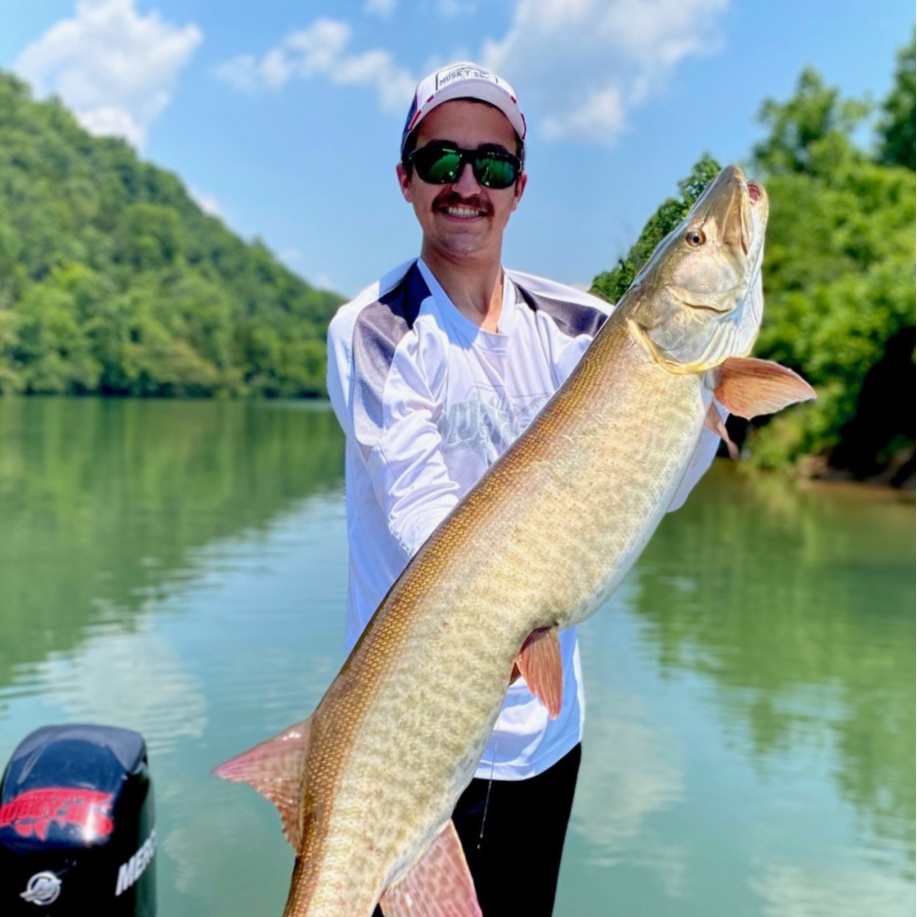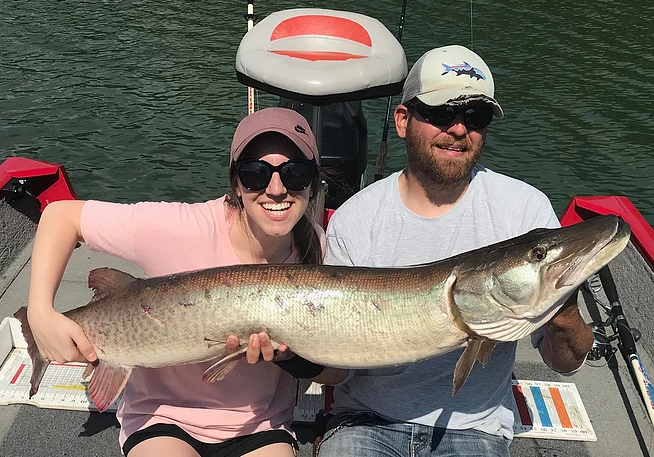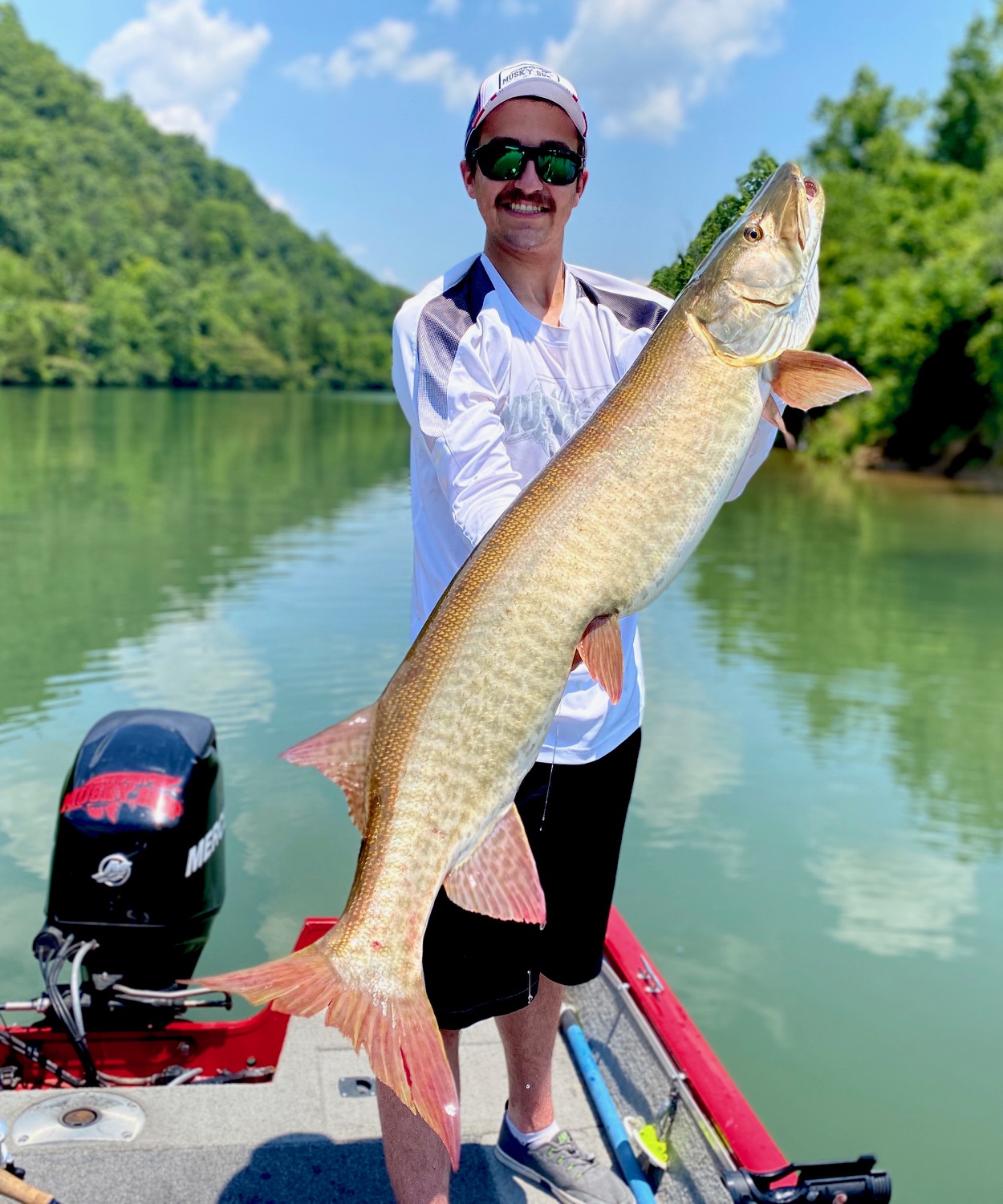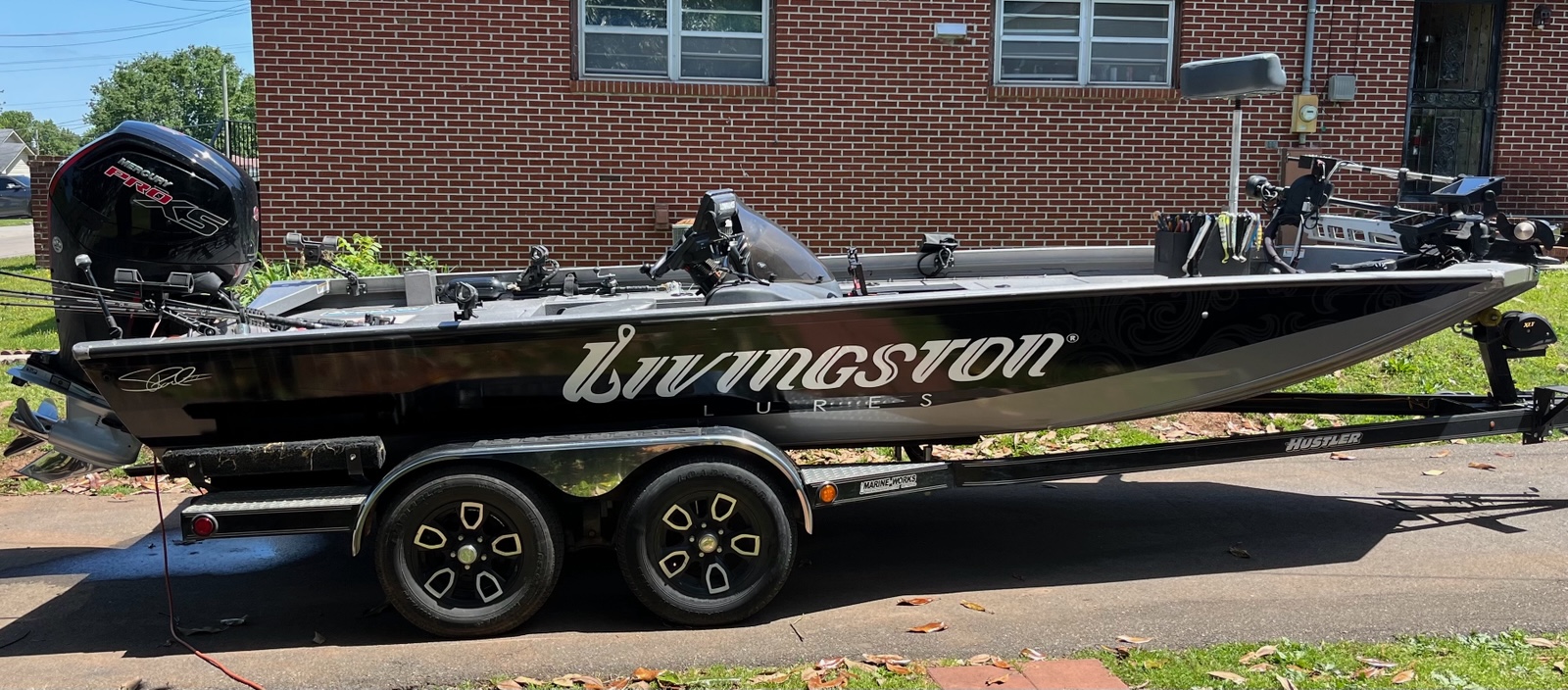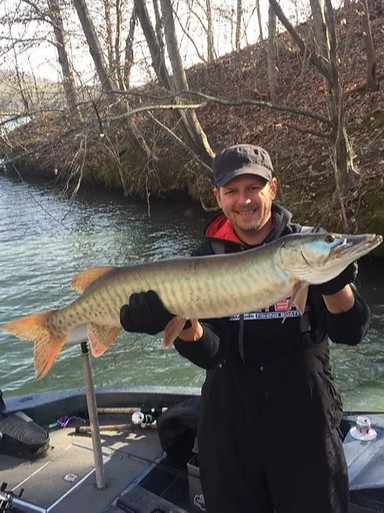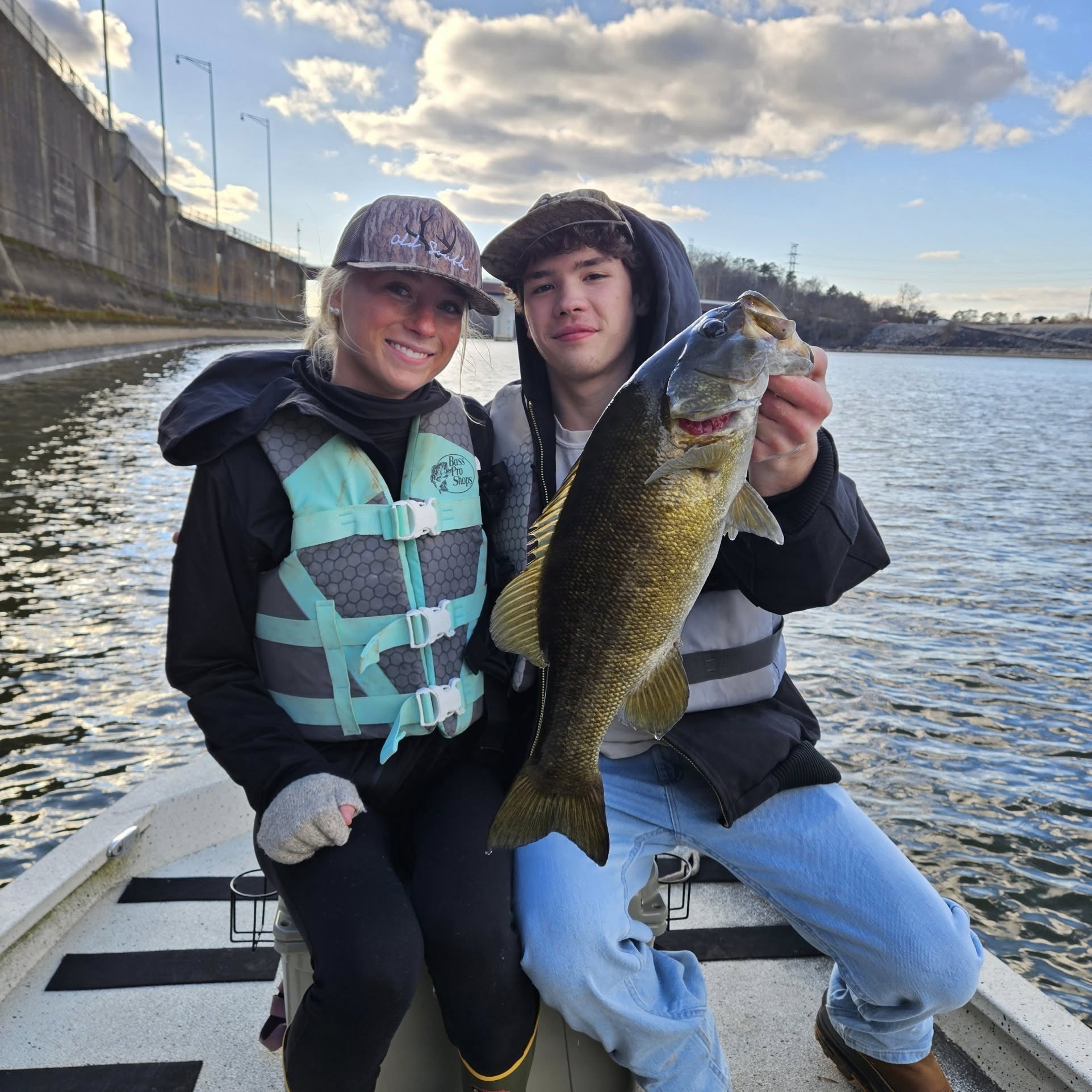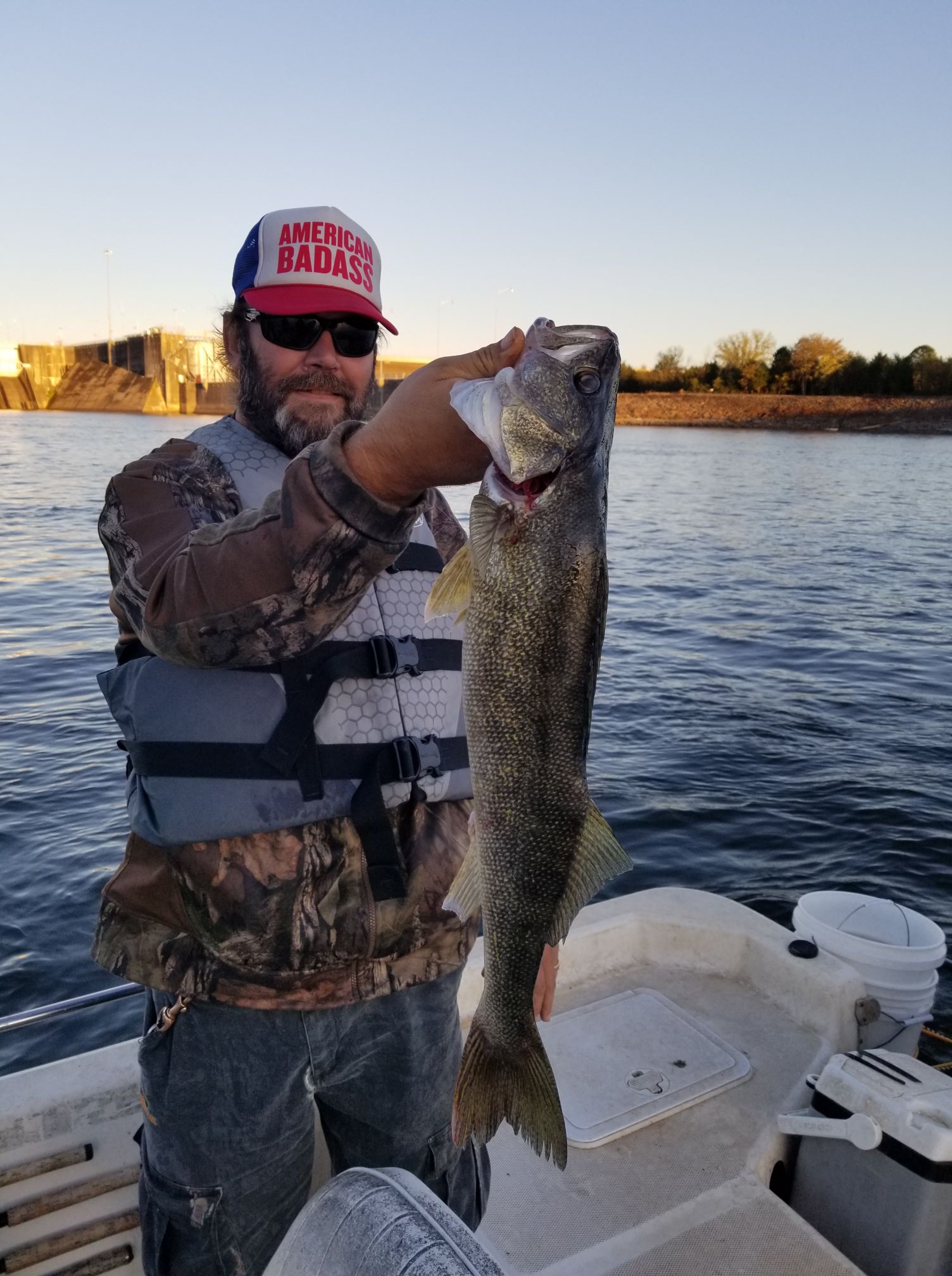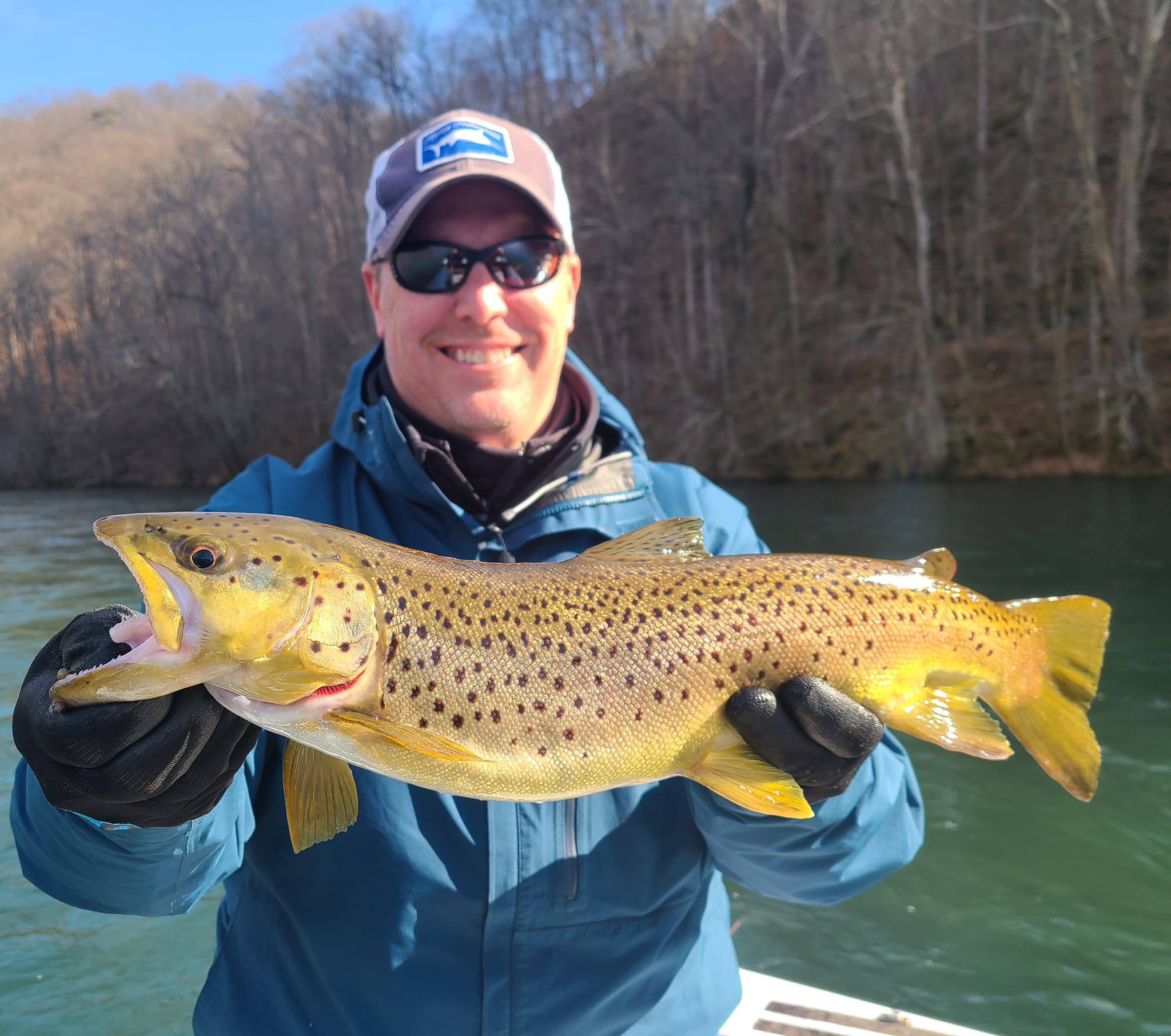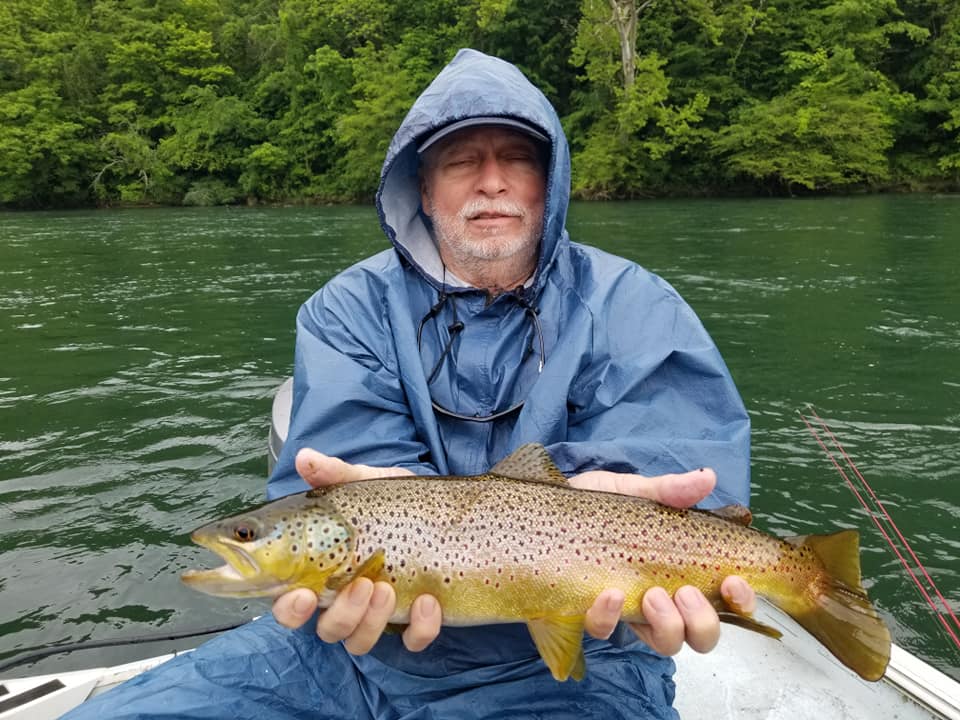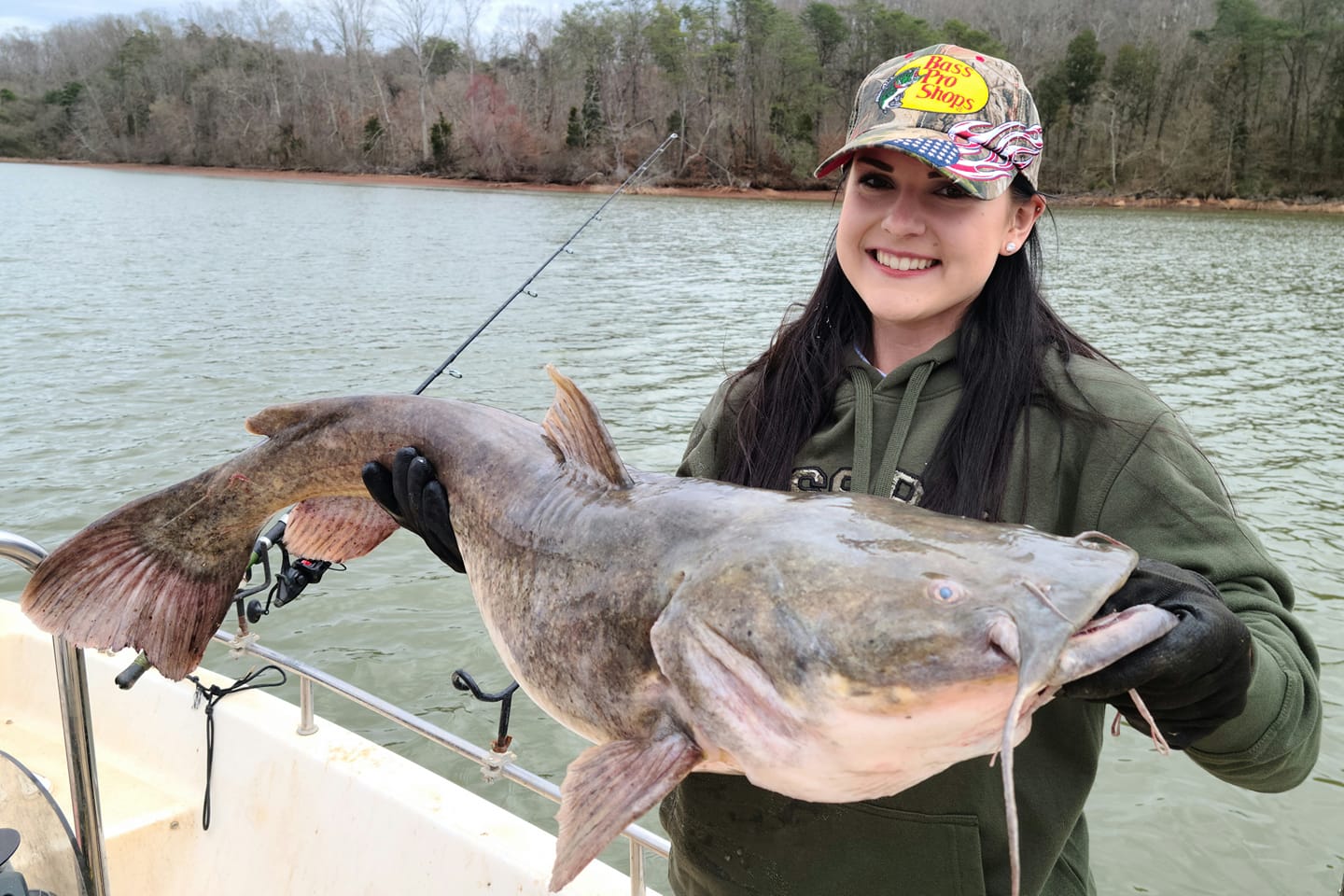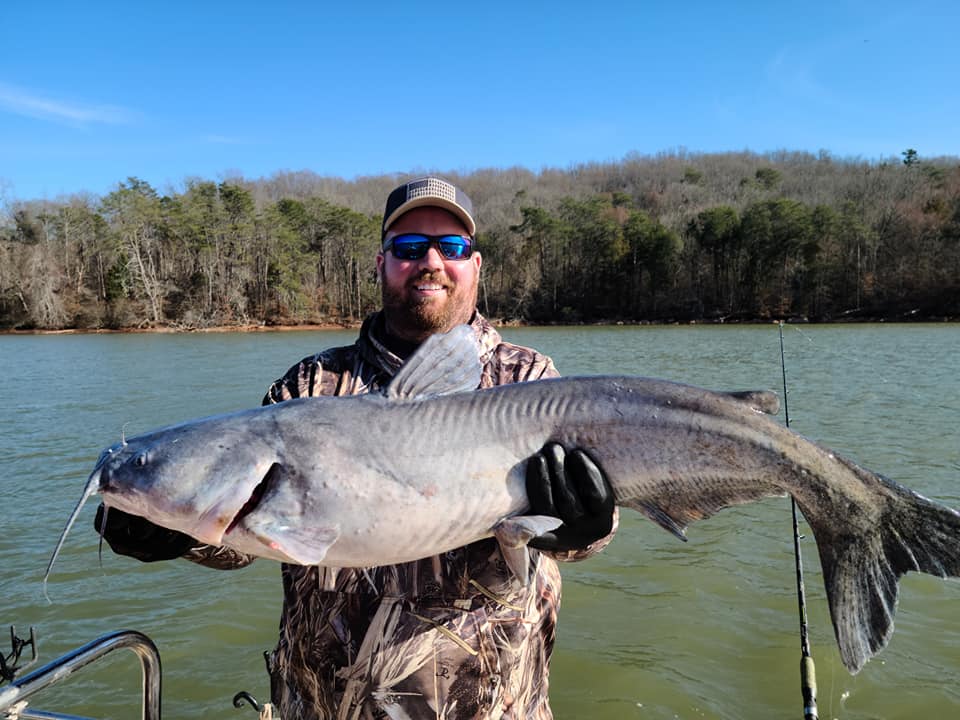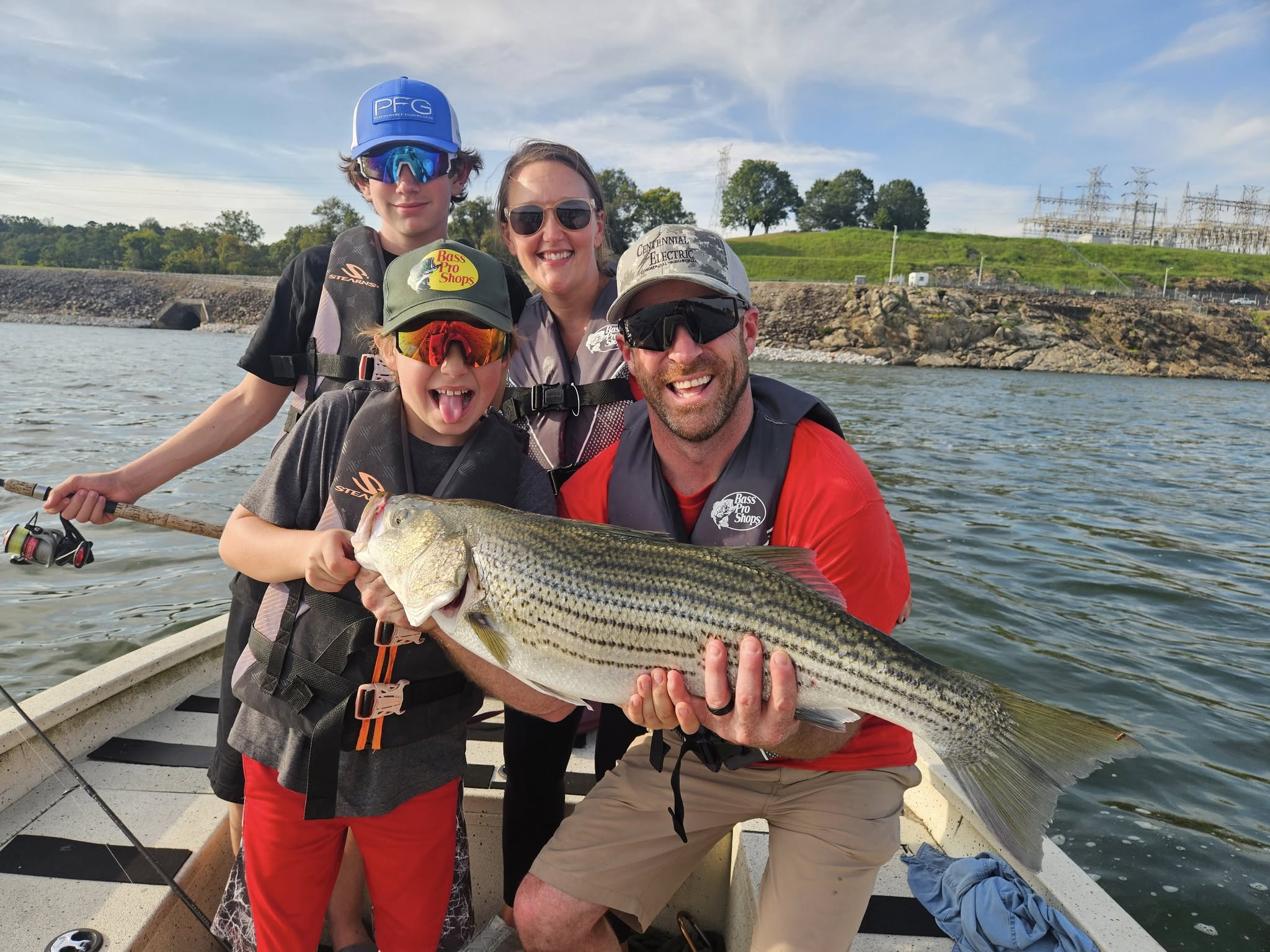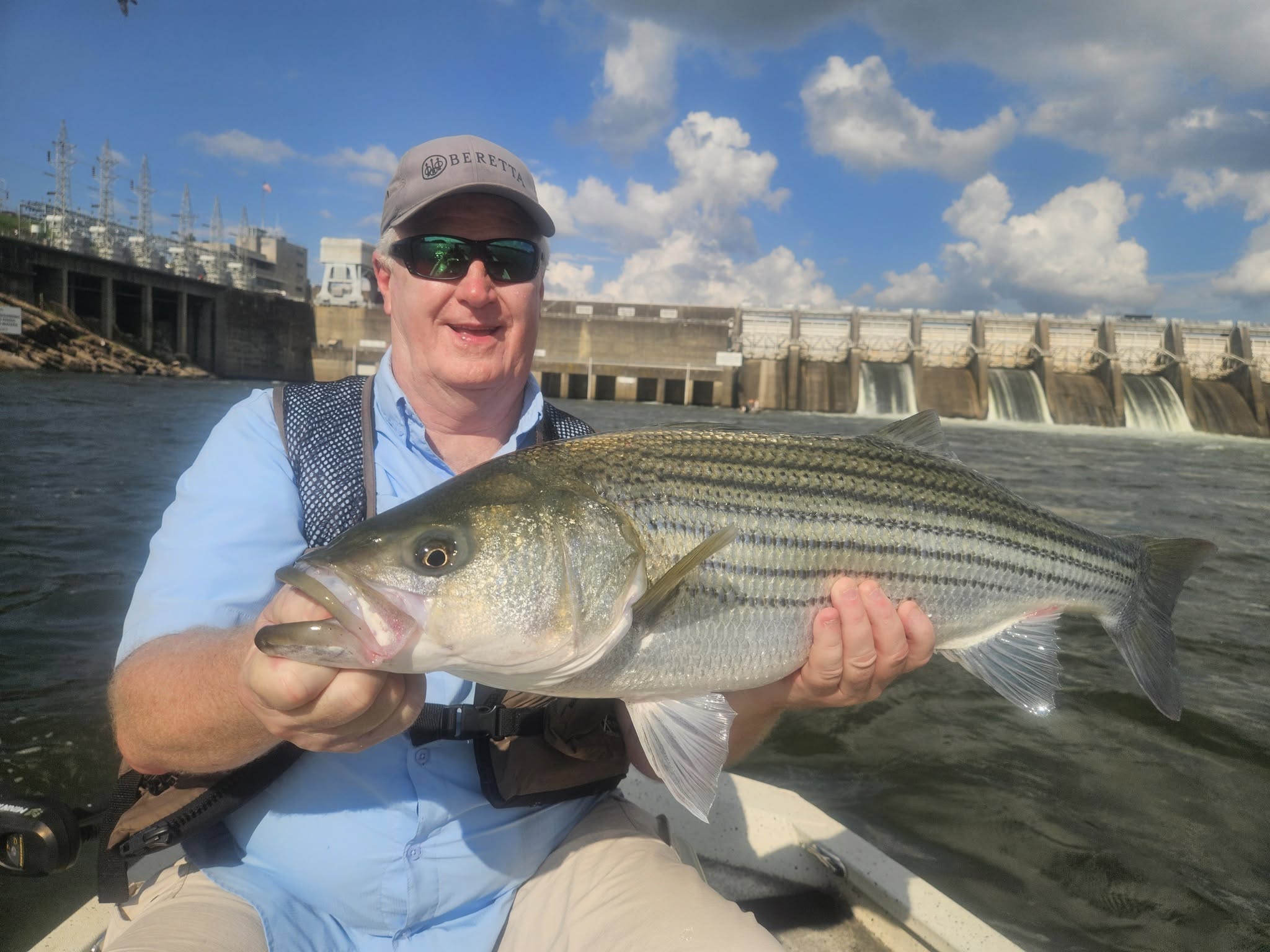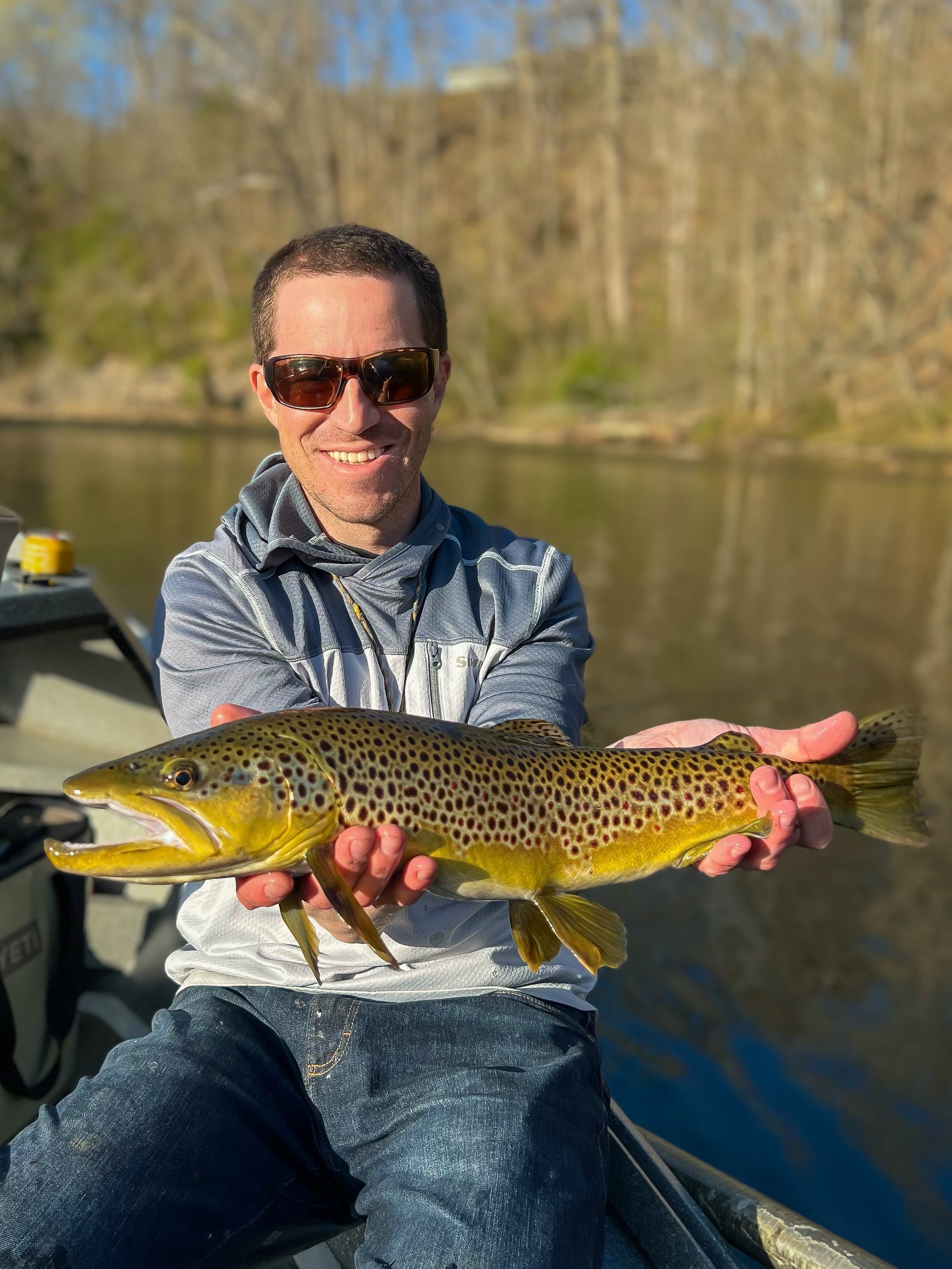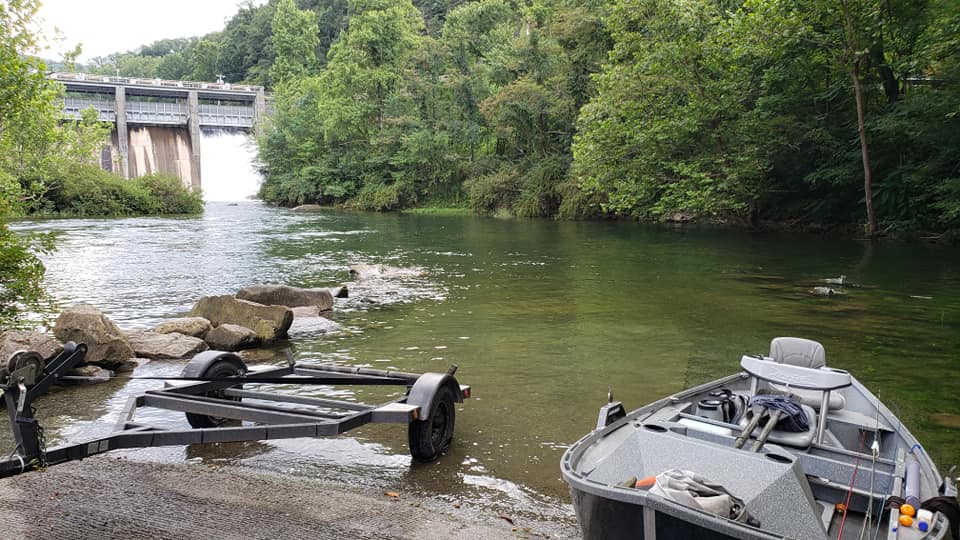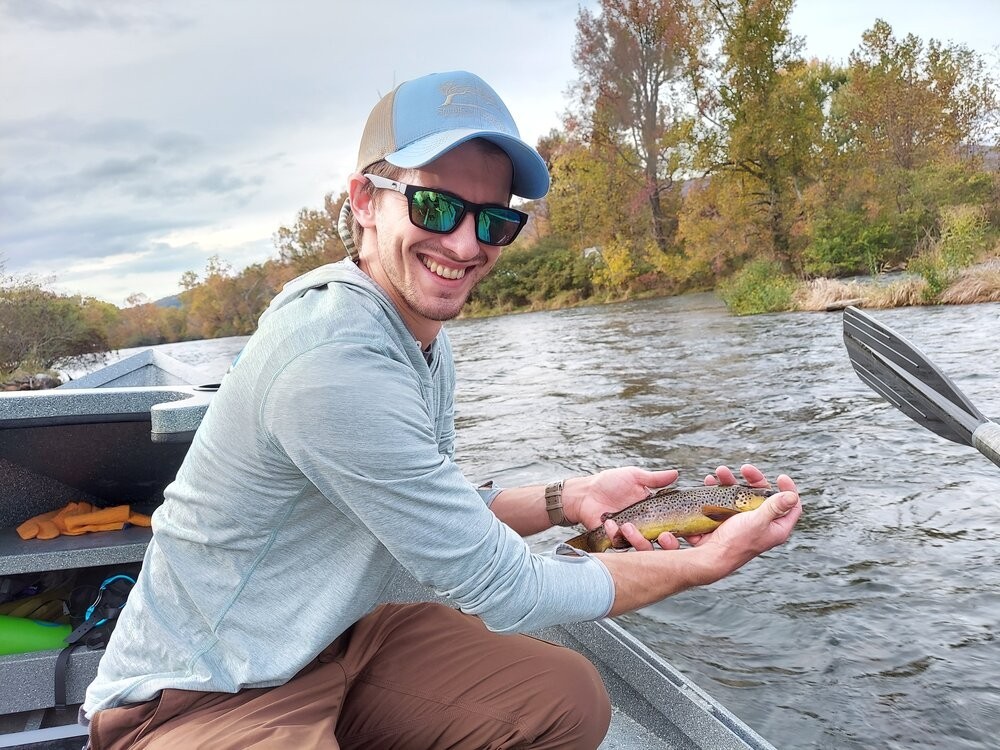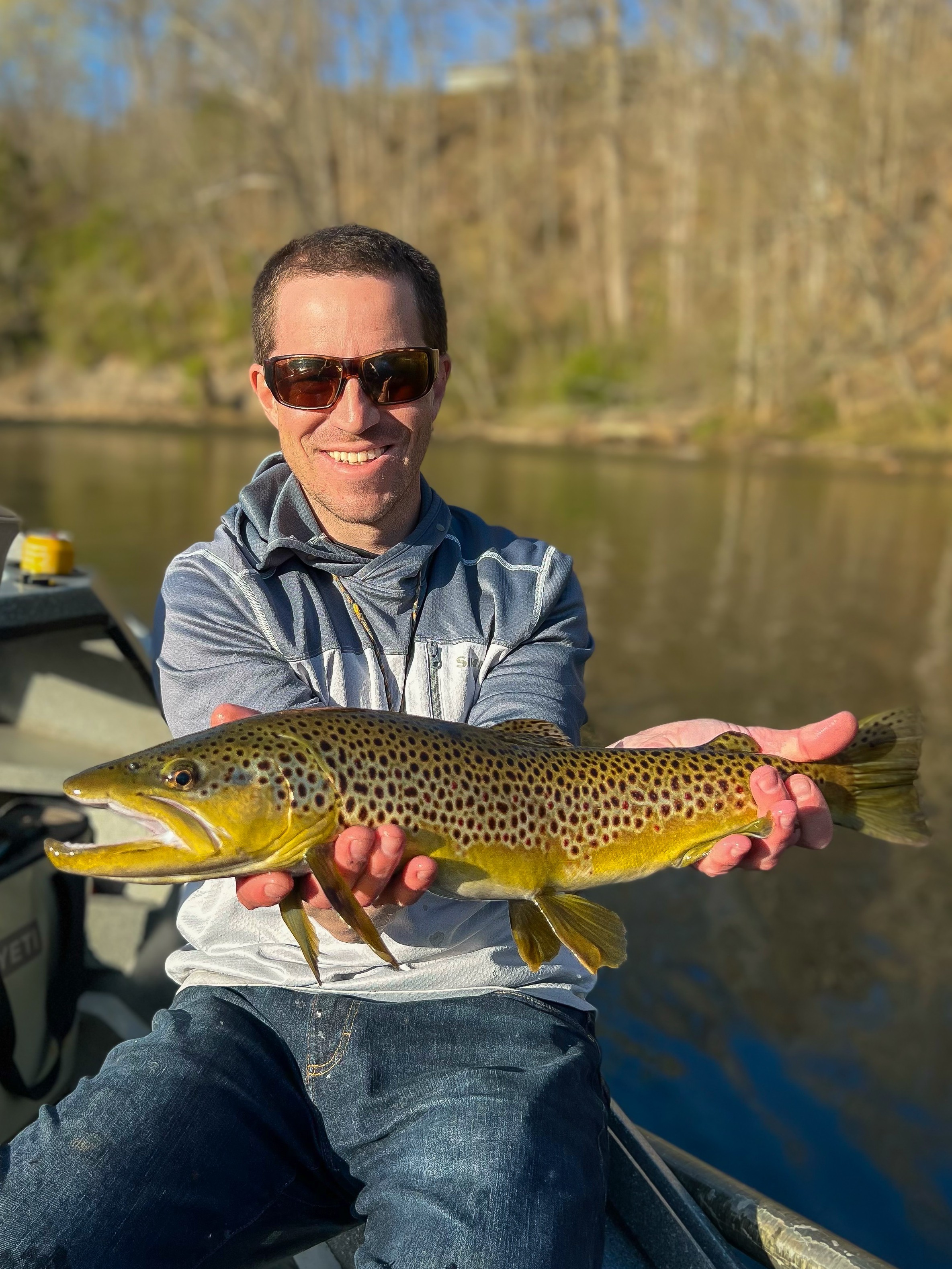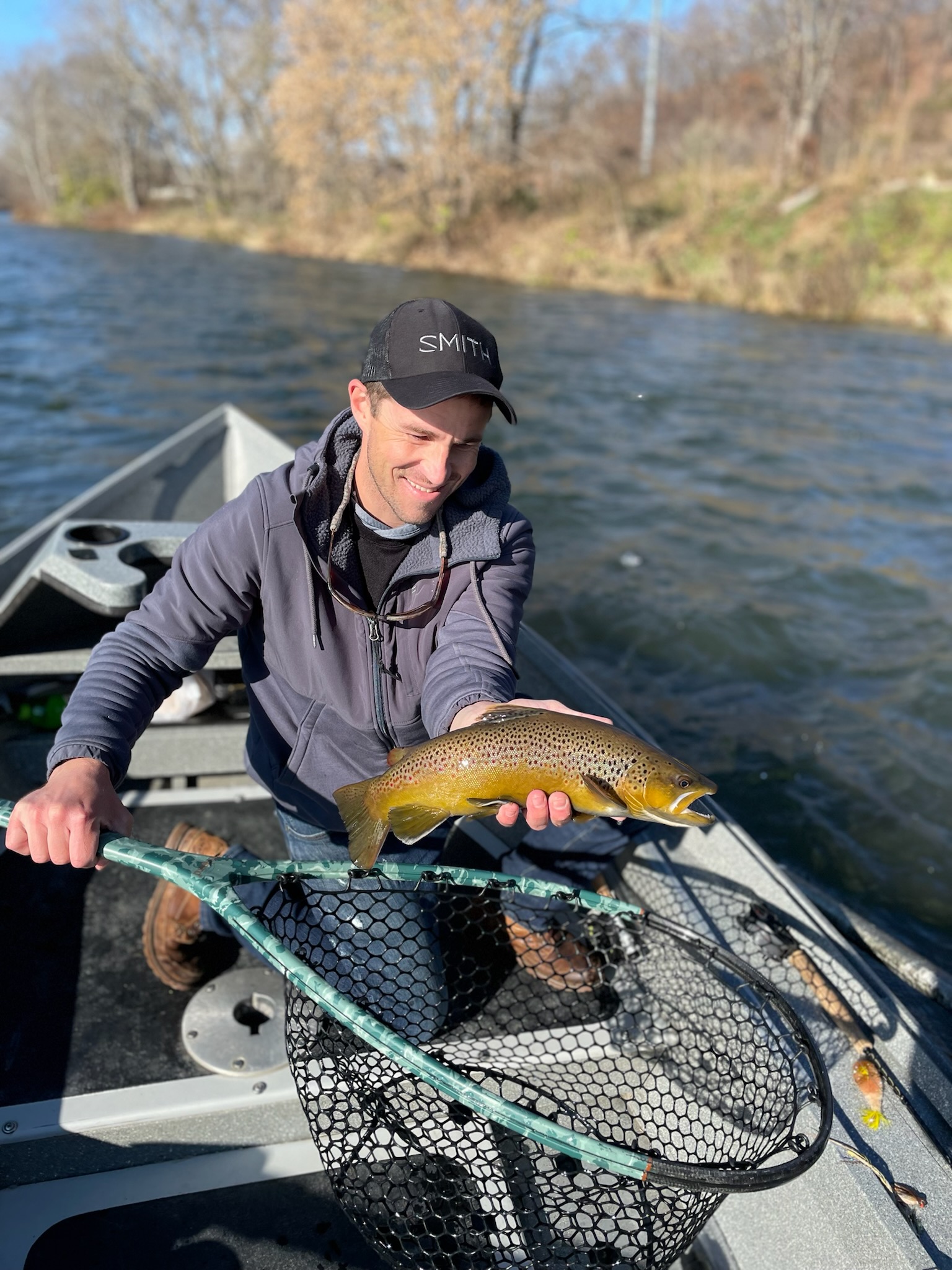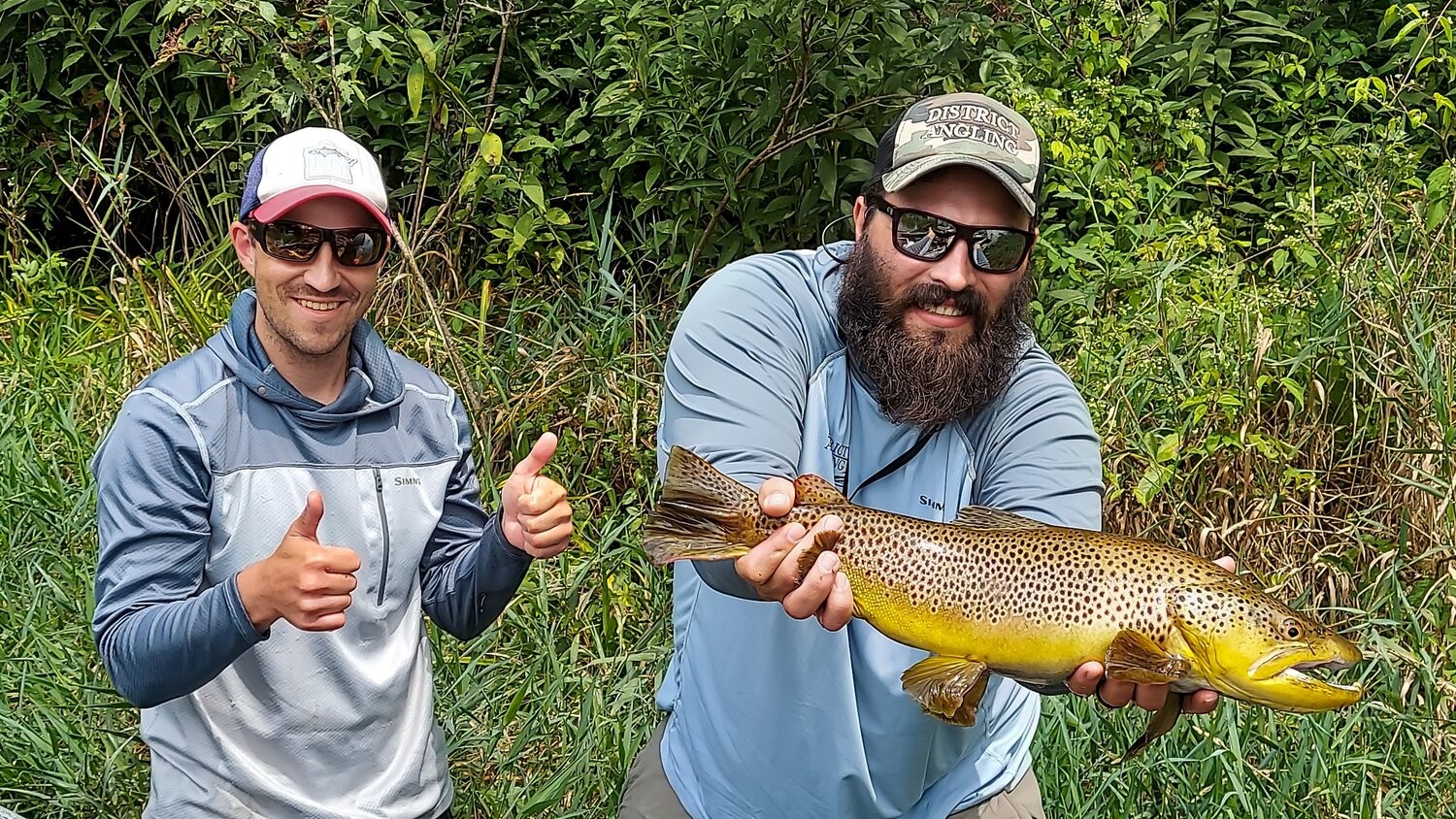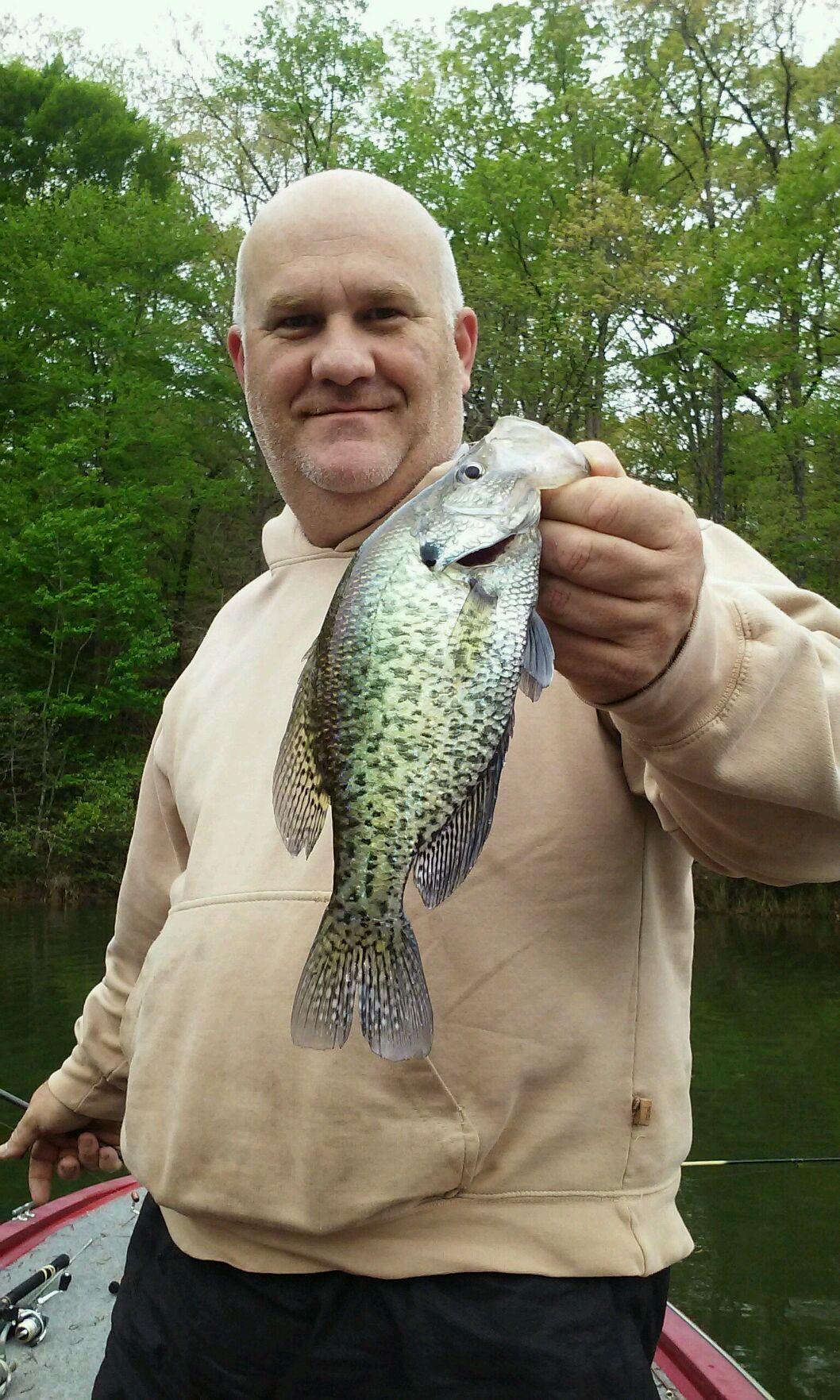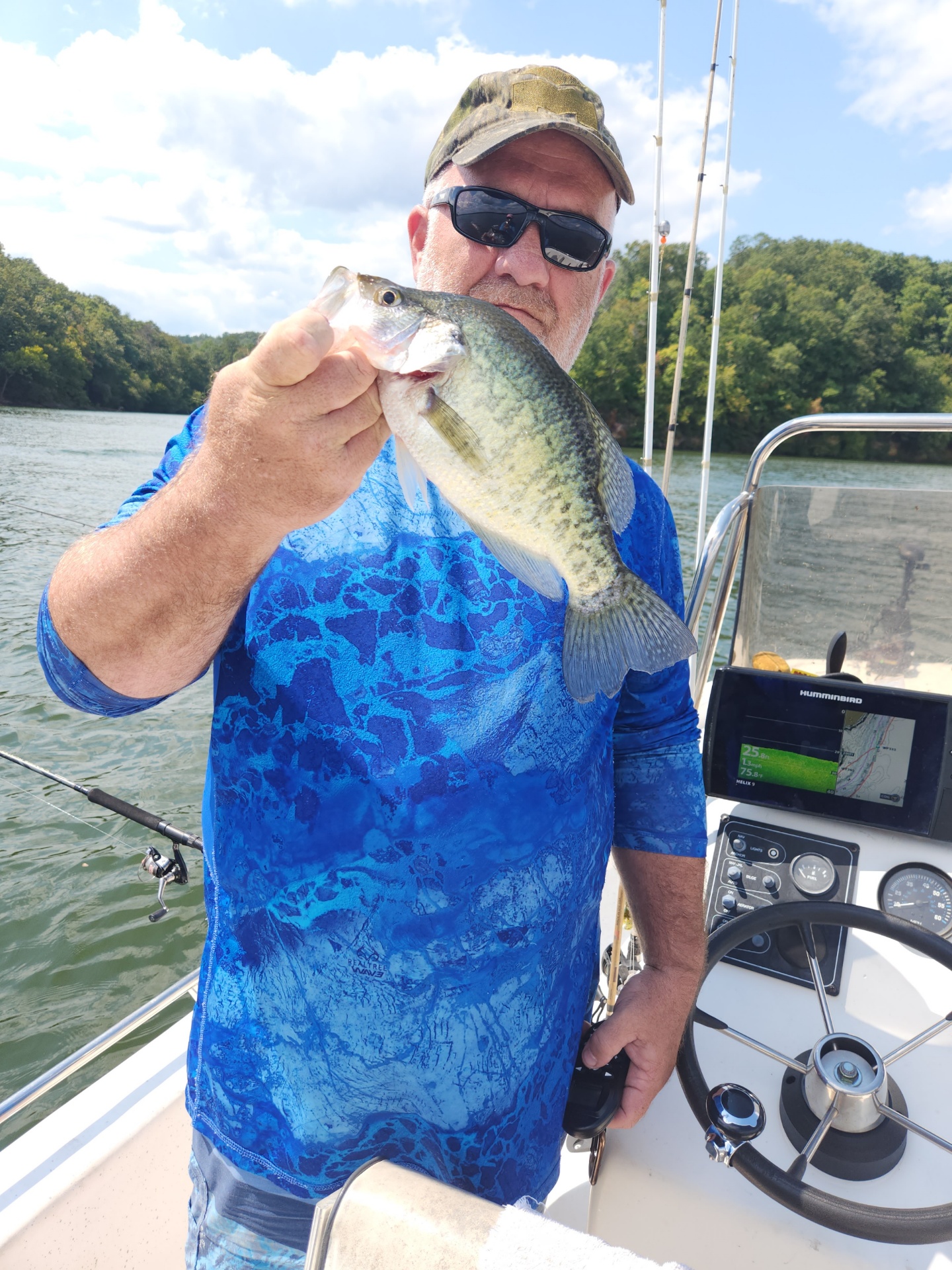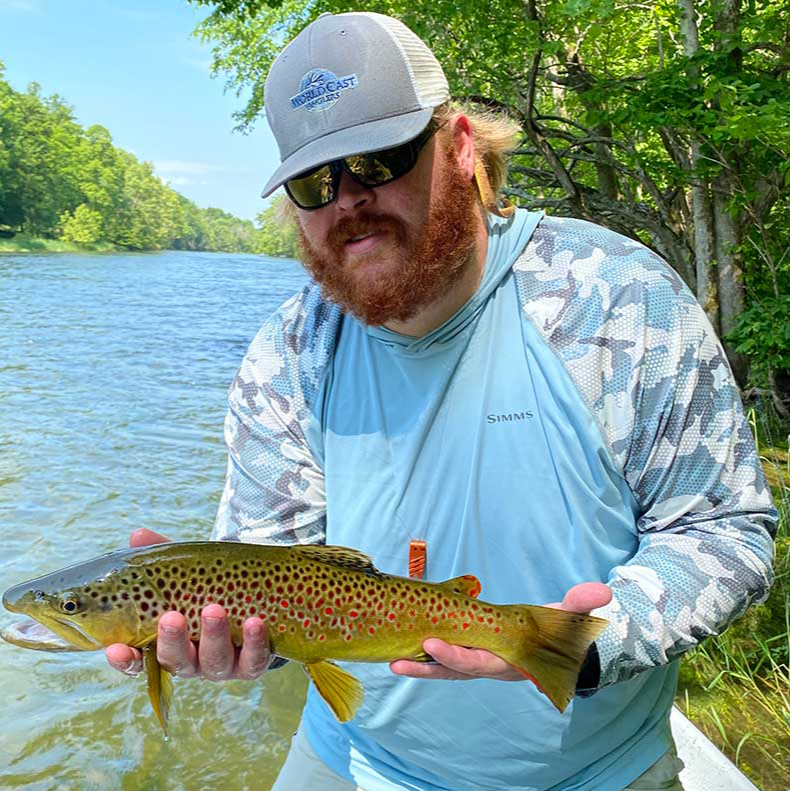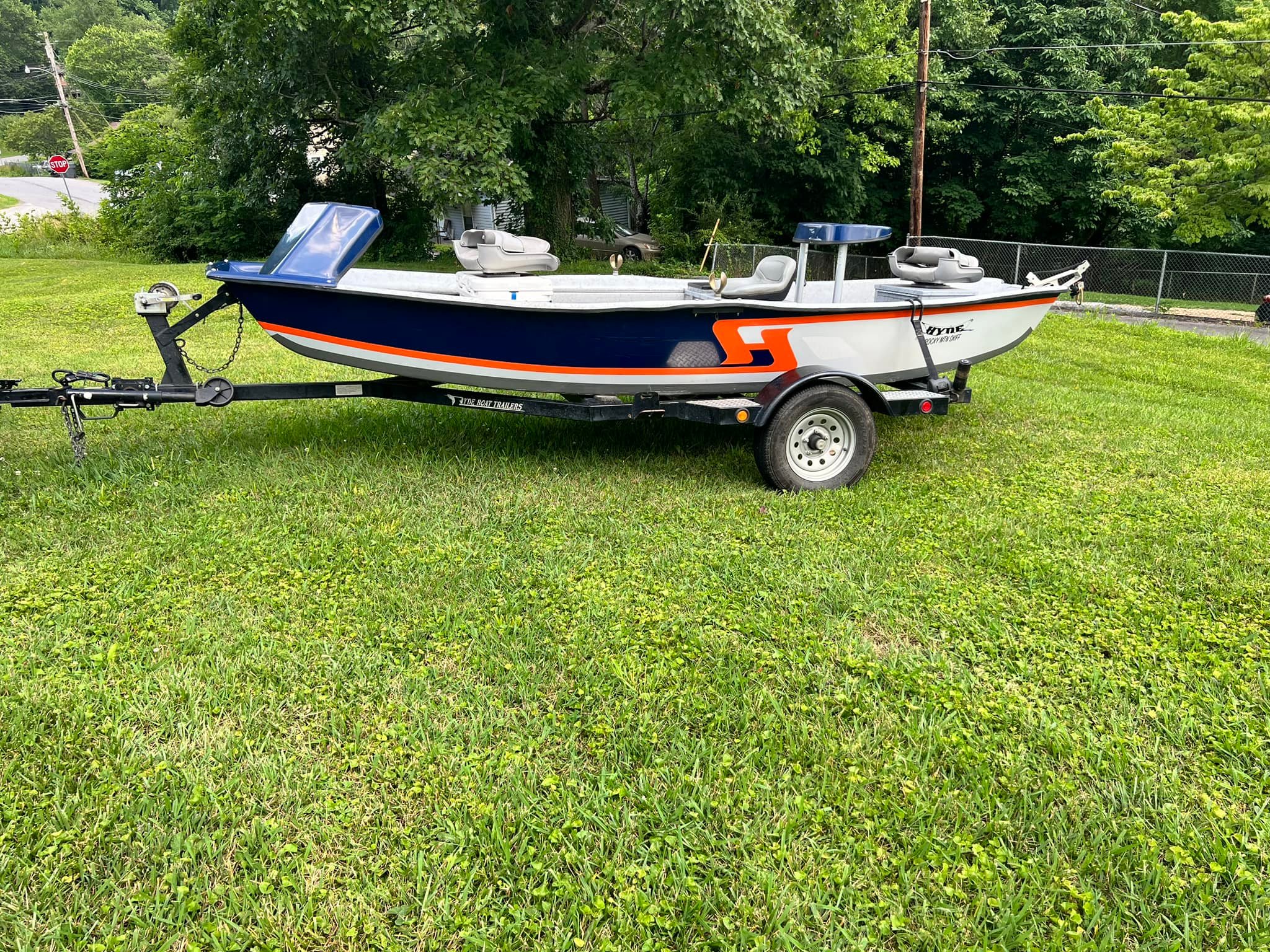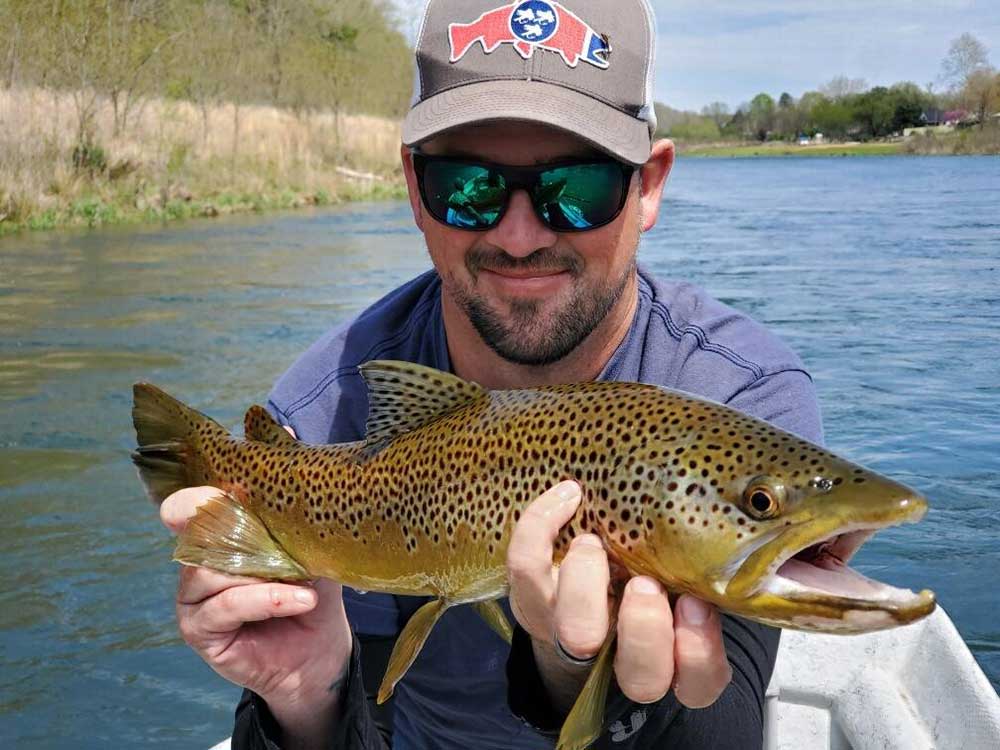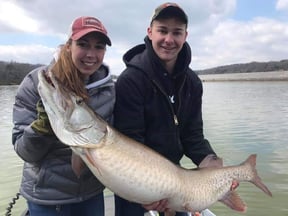River, Lake Fishing in Knoxville
Tennessee Musky Fishing
River, Lake Fishing in Knoxville
Tennessee Musky Fly Fishing
Trifecta Trip
Trout Trip
Catfish Trip
Striped Bass Fishing
Fishing Streamers For Big Browns
Tailwater Trout
TN River Crappie
SOUTH HOLSTON RIVER FLY FISHING
We started Captain Experiences to make it easy to book fishing and hunting guides around the world. With over 2,000 Damn Good Guides, our platform makes finding and booking a trip seamless. Head here to check out our trips.
What is a Musky?
The muskellunge, more commonly known as muskie or musky for short, is a freshwater apex predator. The musky is the largest member of the pike family, and once they get big enough, they will also eat northern pike.
The name muskellunge originally comes from tribes native to the northern US and Canada. Depending on the translation, the name means “great fish” or “big pike”. The fish itself is a large ambush predator with a long, thin shape built for speed. They have an impressive set of teeth built for snagging prey, and given the opportunity, will eat almost anything including reptiles, mammals, and other fish that sometimes appear too large to fit in the musky’s mouth.
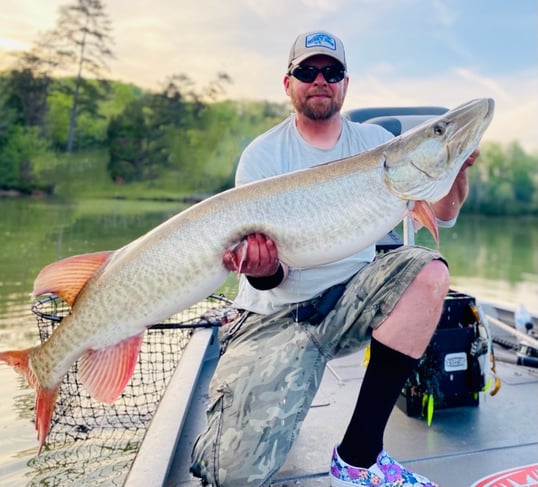
Fishing For Musky
Musky are targeted as trophy fish due to their size along with the difficulty and skill involved in catching them. As a general rule, musky can be finicky and may appear but not seem to like the presentation. There is a reason they are known as the “fish of 10,000 casts”. Sometimes they can be enticed with a last-minute figure-8 by the boat, but more often than not, they will swim away and leave you trying again. This differs from pike, who are likely to eat anything that comes their way.
Musky Fishing Tips
Musky have selective, borderline moody eating habits. That, plus the fact that they grow into powerful 50 to 60 inch-long fish with a mouth full of teeth, adds up to a fish that requires a ton of skill and knowledge to catch.
Since musky are apex predators, there are naturally fewer of them in a given body of water, and they will be fairly spread out. Even with plenty of skill and experience, musky anglers are considered successful if they catch one fish or even just get a few bites. Our Damn Good Guide Steven in Tennessee put it best by saying “in bass fishing, people ask “how’d you do today?” but for musky fishermen, they ask “how’d you do this week?”
To help shorten the extensive learning curve that comes with musky fishing, here are some tips from Steven, who knows more about musky hunting than just about anyone else (and also happens to hold the current Tennessee State Record Musky).
Big Baits for Big Fish
Musky anglers have a reputation for having big tackle boxes full of huge baits. When I asked Steven about the validity of the popular phrase “big baits equal big fish", he responded by saying “if you want to catch a muskie, commit to big presentations—the smallest bait I throw is a five-inch crankbait.”
Steven doubled down on big baits, explaining “musky aren’t going to waste their time on small baits. They want a meal that’s worth the effort.” During my conversation with Steven about lure selection, he mentioned that he routinely trolls a 17-inch crankbait, which is big even by saltwater standards for reference.
If you want to catch musky, but don’t know where to start when it comes to lure selection, Steven had a couple of recommendations. The first lure is a large bucktail with a black skirt and silver blade. This is not the same as a bucktail jig used for striper fishing; these lures more closely resemble a spinner bait.
The second lure is a whopper plopper—particularly the bigger versions of the bait that are five and seven inches long. The whopper plopper has been around for a long time, but that’s because it continues to produce fish.
Solar-Lunar Tables
When discussing the best time of day to go fishing, dawn and dusk are always great, which is an opinion Steven emphasized before diving into solar-lunar tables.
According to Steven “solar-lunar is crucial. The minor and major feeding times are spot on.” Last week while fishing in Wisconsin, he explained that the bite was slow until one of the solar-lunar feeding times hit. At that point, they proceeded to catch six musky in 15 minutes.
He explained, “right now all of the bites are at moonset,” regardless of whether it happens at midnight or high noon. Steven’s advice for when to target musky is to “always be on a good spot, then wait for the solar-lunar feeding windows.”
Musky Fishing Mistakes
The physical, mental, and technical difficulty of catching such a powerful sportfish is immense, so I made sure to ask Steven about the common pitfalls many new musky anglers fall into.
Steven said the most common mistake made by anglers new to musky fishing is that “they ‘re trying to use the wrong tools," adding, "you have to make the financial commitment.”
He went on to explain that the gear doesn’t have to be expensive, but a “300 size reel and 80 pound braid” are the minimum requirements, and mentioned “you also better use a leader.”
Beyond having gear capable of landing one of these trophy fish, Steven brought up the old musky adage “fish of 10,000 casts.” He said, “there’s some truth to that. You have to thoroughly fish your spots and not hustle. These fish are super lazy and won’t bother unless it’s worth it.”
Finally, the last key tip was about where musky can be found waiting to ambush their prey.
Steven explained new anglers believe that because musky are 50 to 60 inches long, they “think these fish are going to run deeper than they do.” He elaborated by saying, “a lot of fish[musky] come out of 18 inches of water. You don’t always need to fish deep water.”
Brief Background on Musky Guide Steven Paul
Steven Paul currently holds the Tennessee state record musky, and guides fishing trips targeting these trophy fish on Melton Hill Reservoir. He has been a professional fishing guide since he was only 13 years old, and has become an expert on musky fishing. Steven is a fishing writer, musky seminar presenter, and Co-Owner of Musky Hunter Magazine. He is also the host of of Musky Shop TV, the Musky 360 Podcast, and creator of the Musky 360 app with the help of his business partner Hall of Fame Musky Angler, Joe Bucher.
If you'd like to try out musky fishing with the best of em, book a conventional trip or a fly fishing trip with Steven today. He uses his extensive knowledge, experience and know-how to provide you with the musky guide trip of a lifetime, every time. With the Native Tennessee Musky population thriving and Melton Hill Musky being stocked yearly, there is no better time to book a trip and catch the musky you have been dreaming of.
Joey Butrus
Updated on June 22, 2023

August 21, 2023

May 13, 2024
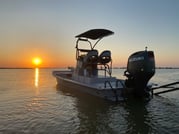
January 7, 2022
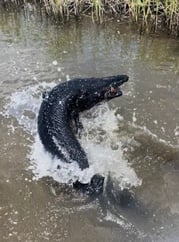
June 22, 2022
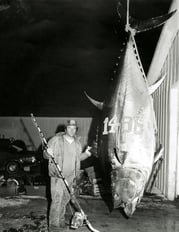
June 3, 2021
Related Articles
March 22, 2022
November 29, 2022
May 13, 2024
Featured Locations
- Fishing Charters Near Me
- Austin Fishing Guides
- Biloxi Fishing Charters
- Bradenton Fishing Charters
- Cabo San Lucas Fishing Charters
- Cancun Fishing Charters
- Cape Coral Fishing Charters
- Charleston Fishing Charters
- Clearwater Fishing Charters
- Corpus Christi Fishing Charters
- Crystal River Fishing Charters
- Dauphin Island Fishing Charters
- Daytona Beach Fishing Charters
- Destin Fishing Charters
- Fort Lauderdale Fishing Charters
- Fort Myers Fishing Charters
- Fort Walton Beach Fishing Charters
- Galveston Fishing Charters
- Gulf Shores Fishing Charters
- Hatteras Fishing Charters
- Hilton Head Fishing Charters
- Islamorada Fishing Charters
- Jacksonville Fishing Charters
- Jupiter Fishing Charters
- Key Largo Fishing Charters
- Key West Fishing Charters
- Kona Fishing Charters
- Lakeside Marblehead Fishing Charters
- Marathon Fishing Charters
- Marco Island Fishing Charters
- Miami Fishing Charters
- Montauk Fishing Charters
- Morehead City Fishing Charters
- Naples Fishing Charters
- New Orleans Fishing Charters
- New Smyrna Beach Fishing Charters
- Ocean City Fishing Charters
- Orange Beach Fishing Charters
- Panama City Beach Fishing Charters
- Pensacola Fishing Charters
- Pompano Beach Fishing Charters
- Port Aransas Fishing Charters
- Port Orange Fishing Charters
- Rockport Fishing Charters
- San Diego Fishing Charters
- San Juan Fishing Charters
- Sarasota Fishing Charters
- South Padre Island Fishing Charters
- St. Augustine Fishing Charters
- St. Petersburg Fishing Charters
- Tampa Fishing Charters
- Tarpon Springs Fishing Charters
- Venice Fishing Charters
- Virginia Beach Fishing Charters
- West Palm Beach Fishing Charters
- Wilmington Fishing Charters
- Wrightsville Beach Fishing Charters
